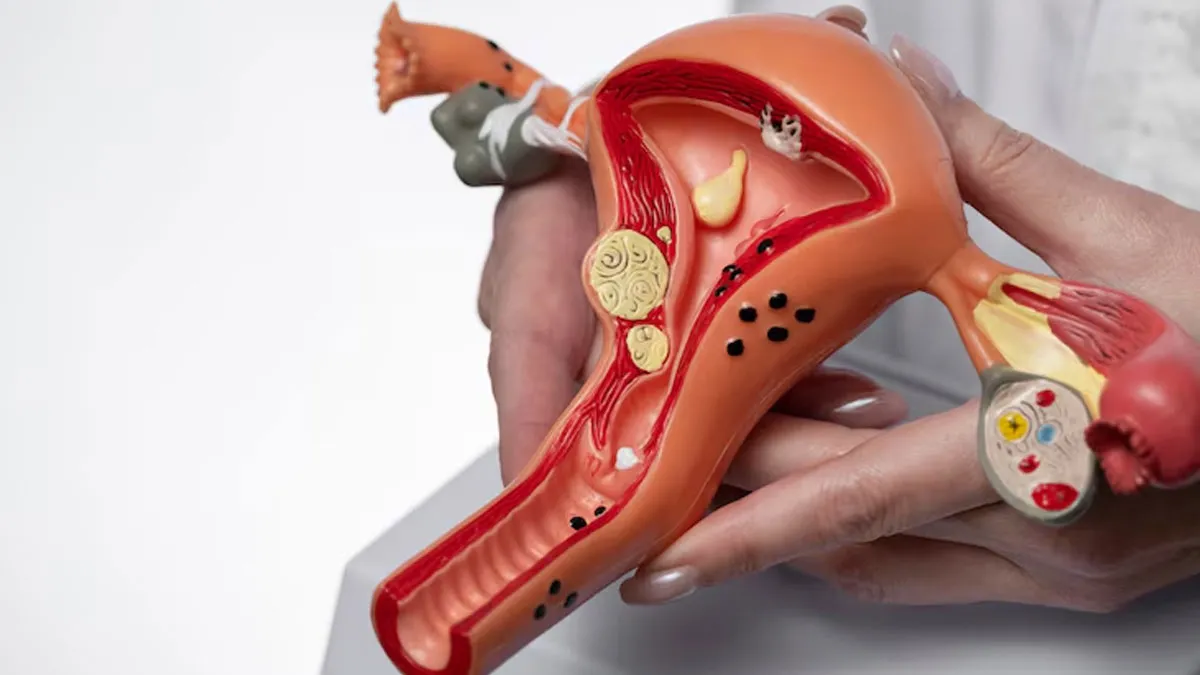
How Fibroids Affect Female Fertility? Expert Tips On Early Detection And Prevention
Are you aware? Many women tend to experience unexplained pelvic pain, heavy periods, or difficulty conceiving, not knowing that fibroids might be the cause behind these symptoms. Fibroids are non-cancerous growths that develop in or around the uterus. They impact one’s daily life and reproductive health. So, understanding fibroids, how they take a toll on one's fertility, and the importance of early detection through regular medical checkups will be beneficial for women.
What Are Fibroids?
Fibroids, also known as uterine leiomyomas, are muscular tumours that grow in the wall of the uterus. They vary in size and can be as small as the size of a seed to as big as a melon. Though the exact cause of fibroids is unknown, factors like hormonal imbalance (particularly oestrogen and progesterone), genetics, obesity, and lifestyle choices can be behind them.
The symptoms – heavy or prolonged menstrual bleeding, pelvic pain or pressure, frequent urination, lower back pain, constipation, and pain during intercourse – are commonly seen in women. While some women may not experience any symptoms, the fibroids can also be discovered during pelvic exams or ultrasounds.

If left unmanaged, the fibroids can lead to severe anemia due to heavy bleeding. During pregnancy, fibroids can increase the risk of complications such as miscarriage (losing the baby in early pregnancy), preterm delivery (giving birth too early), or even problems with the baby’s position inside the womb. Large fibroids can also block the fallopian tubes, making it harder for the sperm to reach the egg. In some cases, fibroids may change the shape of the uterus, making it difficult for a fertilized egg to implant properly—affecting the chances of a successful pregnancy.
1
2
3
4
Because of these risks, it’s important for women who have fibroids and are planning to get pregnant to consult with a gynecologist for the right treatment and monitoring.
Don't Miss: Working Mothers, Restless Minds: Can Spirituality Help Us In Balancing All?
How Do Fibroids Affect Fertility?
Fibroids can impact a woman’s ability to conceive or carry a pregnancy to term. Depending on their size and location, fibroids can block the fallopian tubes, making it difficult for the sperm to meet the egg. They can also impact the shape of the uterus, which may hinder implantation of the embryo or lead to early miscarriage. Even during pregnancy, fibroids can increase the risk of complications like labor difficulties and cesarean delivery. Women trying to conceive or undergoing fertility treatments should be evaluated for fibroids to ensure appropriate care.
Regular checkups can make all the difference: Many fibroids tend to develop silently, without symptoms. Regular checkups, including ultrasounds and pelvic exams, help detect fibroids early. Remember, when identified at the right time, treatment options such as medication or minimally invasive surgery can be discussed with the expert.

Minimally invasive surgical options for fibroids are laparoscopic myomectomy, where fibroids are removed through small abdominal incisions, and the other one is hysteroscopic myomectomy, used for fibroids inside the uterine cavity through the vaginal route. These procedures offer faster recovery, less pain, and minimal scarring compared to traditional surgery. For women of reproductive age, routine checkups are a powerful tool for prevention and peace of mind. Hence, you need to follow the advice of the doctor and seek timely intervention after the symptoms appear.
Don't Miss: Ovarian Rejuvenation What Is It, Who Gets Benefitted, And More
( This article is authored by Dr Tanveer Aujla, Senior Consultant Obstetrician & Gynaecologist, Motherhood Hospitals, Noida)
Image Credits: Freepik
If you liked this story, then please share it. To read more such stories, stay connected to HerZindagi.
Also watch this video
Herzindagi video
1
2
3
4